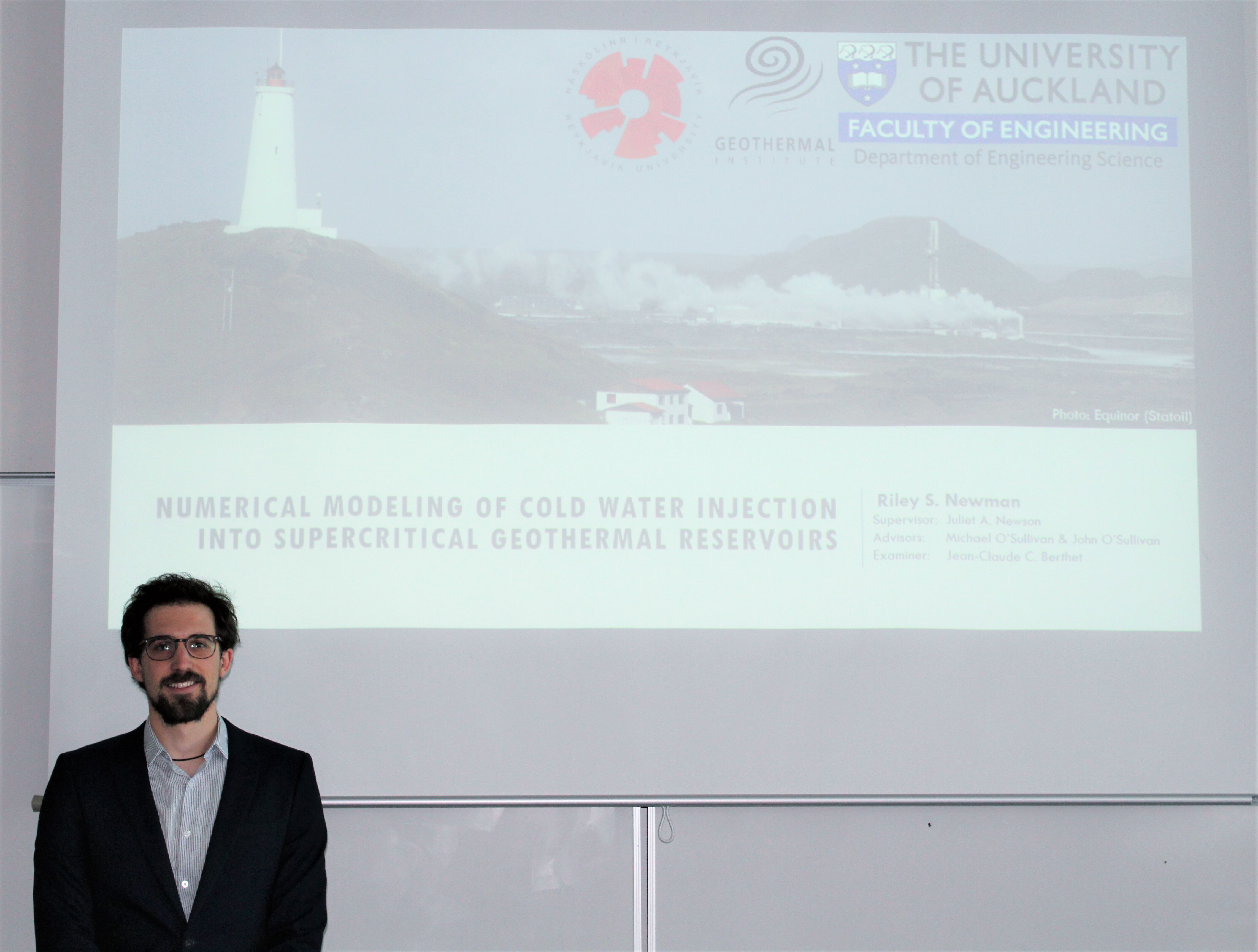MSc Thesis: Numerical Modelling of Cold Water Injection into Supercritical Geothermal Reservoirs
Riley S. Newman successfully defended his master's thesis
REYKJAVIK, June 25 - At the end of last month, MSc in Sustainable Energy Engineering, Riley Newman has successfully defended his master's thesis project in the numerical modelling of cold water injection into supercritical geothermal reservoirs. After spending roughly half a year abroad at the University of Auckland in New Zealand under the supervisions of Michael O'Sullivan and John O'Sullivan, Riley returned to Iceland to complete and defend his thesis. At Reykjavik University, Riley was supervised by Juliet Newson.

Riley's project was inspired by the society's need to reduce global dependence on fossil fuels and to switch to more renewable energy sources. One of these renewable energy sources is geothermal energy, which is a renewable energy resource found in the reservoirs of high temperature geothermal systems. However, the nature of geothermal energy is not fully understood and Riley's thesis aimed to improve the scientific understanding of such natural systems. In particular, supercritical fluids that are found deep under the Earth's surface and close to geothermal heat sources, have been thought to be the answer to increased power production and improved economics of geothermal energy production.
Riley's project involves developing numerical models that simulate a supercritical geothermal resource. In his study, Riley applied the supercritical air-water equation-of-state (EOS) of the AUTOUGH2 numerical simulator to a hypothetical supercritical geothermal reservoir. He successfully simulated a model that illustrates the response of cold water injection to a geothermal reservoir, similar to the Iceland Deep Drilling Project (IDDP-2) project that was completed recently in January 2017. IDDP-2 was a continuation of the IDDP-1 project, an experimental well that reached 4,659 m depth and was aimed to increase understanding of the poorly understood supercritical environment.
In conclusion, Riley's thesis successfully achieved two important objectives: to contribute to knowledge of supercritical reservoirs and to simulate the response of such reservoir to cold injection. To read more on Riley's thesis, please visit the following link.
Congratulations, Riley on an excellent thesis!
